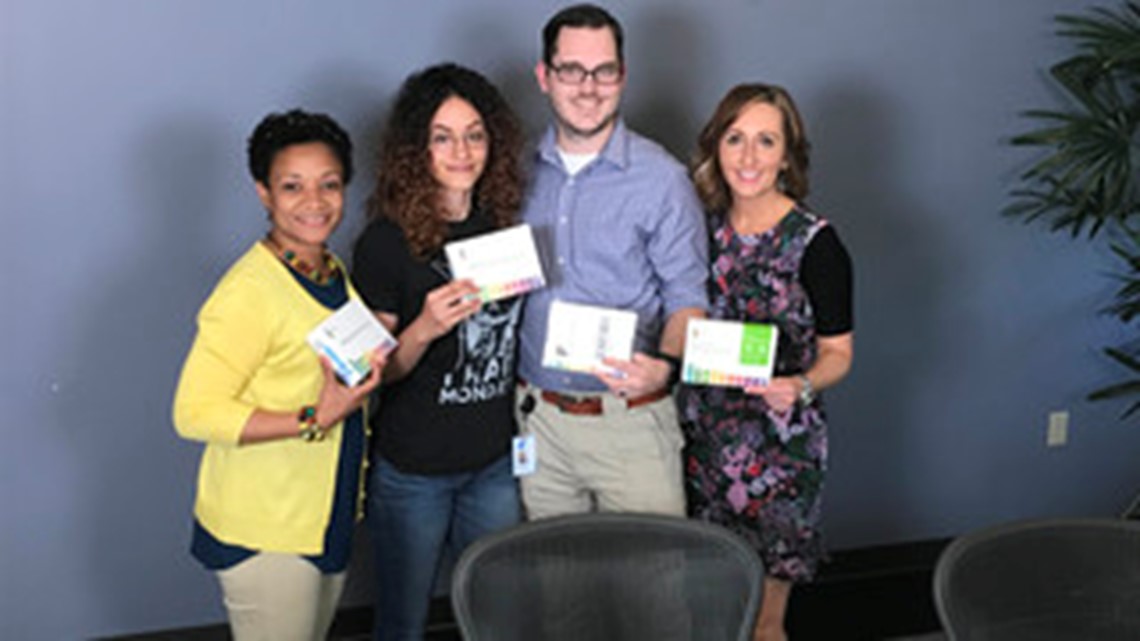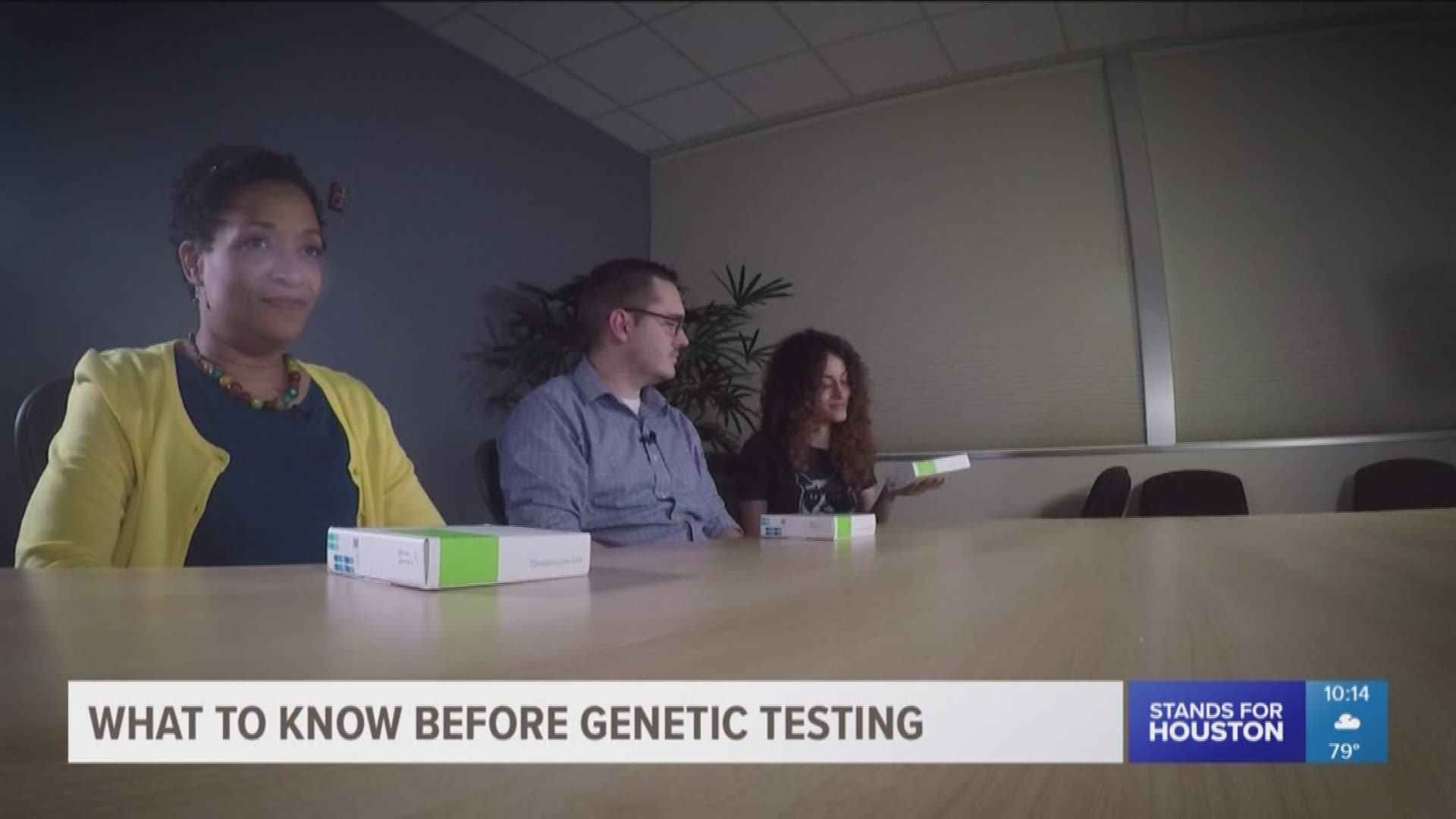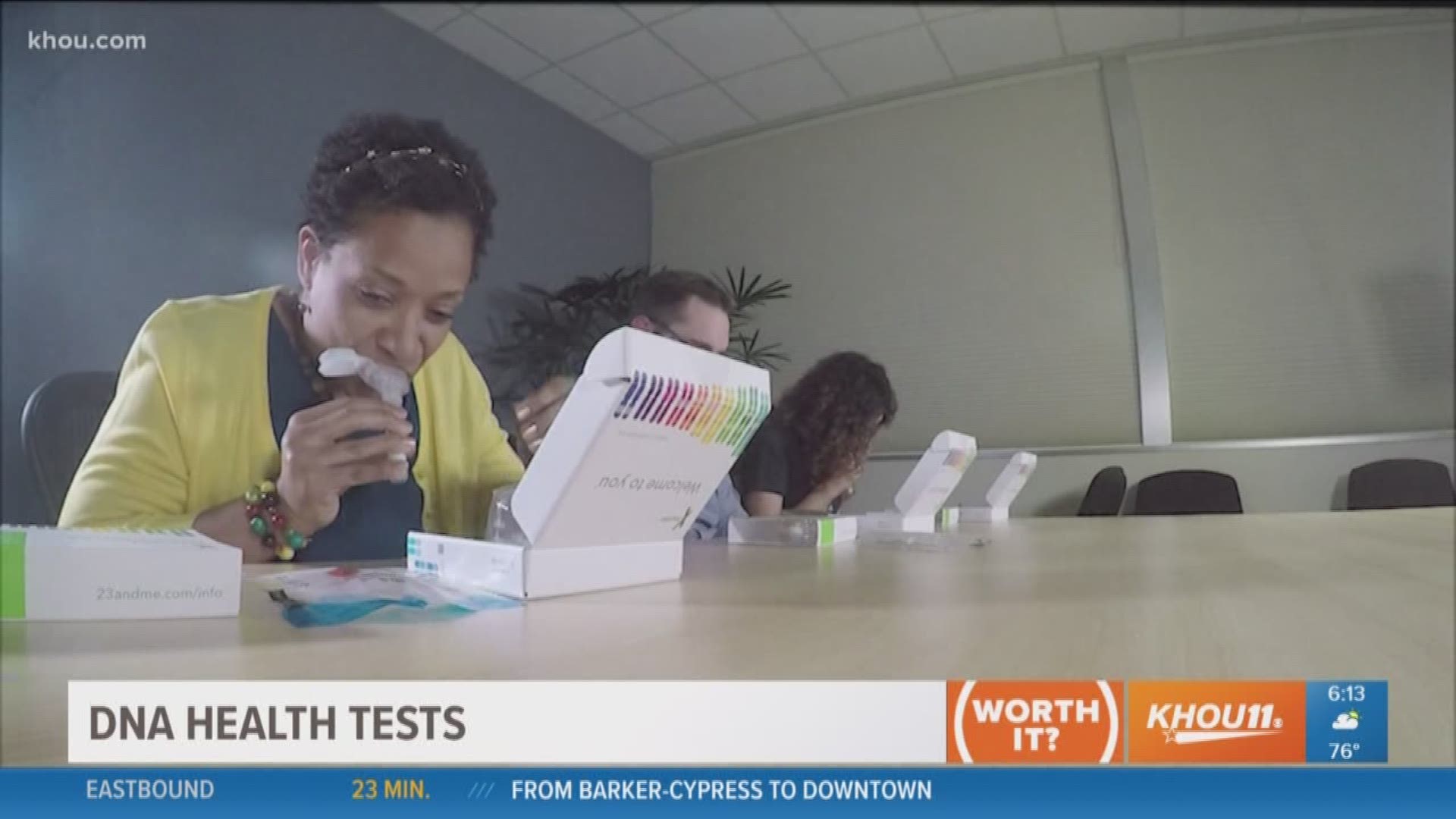HOUSTON - Ever wonder how the home DNA tests work and if they are worth your time and money? We decided to find out for you.
We chose a DNA kit from 23andMe because it offers ancestry and genetic health tests. Our volunteers were Natalie Herron, Tyler Wolf and Liz Ali. They know a little bit about their backgrounds.
Ali said her mom is from Mexico, and her dad was born in Tobago.
"Mexico, Trinidad and Tobago, and then my grandpa on my dad's side is Syrian," she said.
Herron didn’t know quite as much, but her uncle had some information.
"He somehow thinks that there's some connection between Africa, Ireland and North America,” she said.
As for Wolf, he thinks his family is Dutch and German but isn’t sure.
"Where are the most melanin-deficient countries” Tyler joked. “That's where I'm from."
The process is simple. It cost us $199 per person to do both ancestry and health. You start by going online and filling in some information. Then you need to spit into a little container. Finally, you send it the company and wait. On average, the results take about 6 weeks.
It sounds easy enough, but there are some things you should know.
When you pay for the testing online, you’re asked a series of questions about sharing your data. There are lots of consent forms to read through and a lot of choices to make. Remember: you’re sending off your complete genetic code.
Jessica Lynn Roberts is the Director of Health Law Policy Institute at the University of Houston. She urges consumers to read the fine print.
"Admittedly, it will take you take you a long time to look at all the terms and conditions,” she said. “But really, the rights that you have with respect to your data get laid out there."
Roberts also pointed to recent crimes solved after law enforcement accessed information from a familiar ancestry site.
“When you start going outside the scope of what these databases are intended to do, you could run into trouble,” Roberts explained. “They’ve opted in to sharing their genetic information with their potential relatives. They’ve not opted in to making their relatives susceptible to criminal searches."
As for the company we used, here’s what 23andMe says about privacy issues on its website:
“23andMe will not sell, lease, or rent your individual-level information to any third party or to a third party for research purposes without your explicit consent.
- "We do not share customer data with any public databases.
- "We will not provide any person’s data (genetic or non-genetic) to an insurance company or employer.
"We will not provide information to law enforcement or regulatory authorities unless required by law to comply with a valid court order, subpoena, or search warrant for genetic or personal Information."
Some DNA tests will also do a health screening. It tests only genetics to determines if you have genetic markers for diseases like Alzheimer's, Parkinson's and breast cancer.
We talked to Dan Riconda, a genetic counselor at Baylor College of Medicine, to find out what you need to know about the tests.
"Some people will find it helpful...others will find it intimidating and maybe even surprised by how they react to the results," he said.
Riconda suggested looking for a company that uses a clinical lab that is CLIA-certified. CLIA stands for Clinical Laboratory Improvement Amendments and offers some safety nets to make sure the process is regulated and certified.
23andMe’s site says it is CLIA-certified.
Getting back to Herron, Wolf and Ali, here’s what they learned:
Wolf is 99.8 percent European.
"Holy cow,” he said.
Herron is 83.8 percent Sub-Saharan African and 13.4 percent European. Of that percentage, 6 percent is British & Irish.
“I'm just a gumbo,” Herron said. “I love it.”

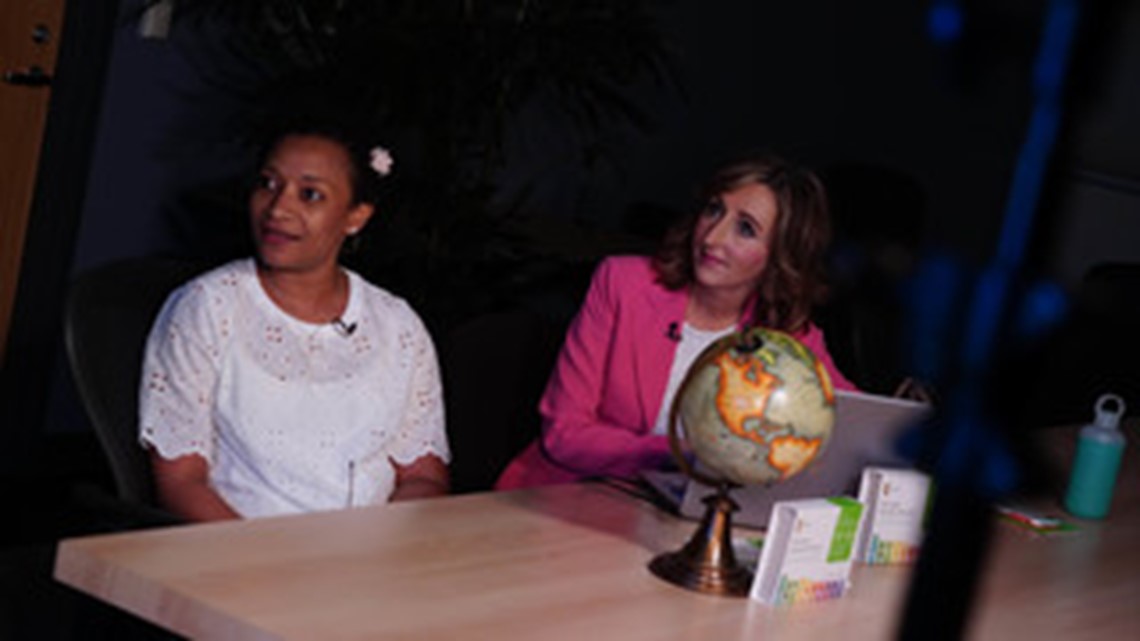
Speaking of a big mix, Ali is last.
"European? Iberian," Ali said while reading her results.
Ali is 39.7 percent European with some Western Asian, North African, Native American and the list goes on.
"Did you realize you were this much of a mixture?" I asked.
“No, I did not," she said.

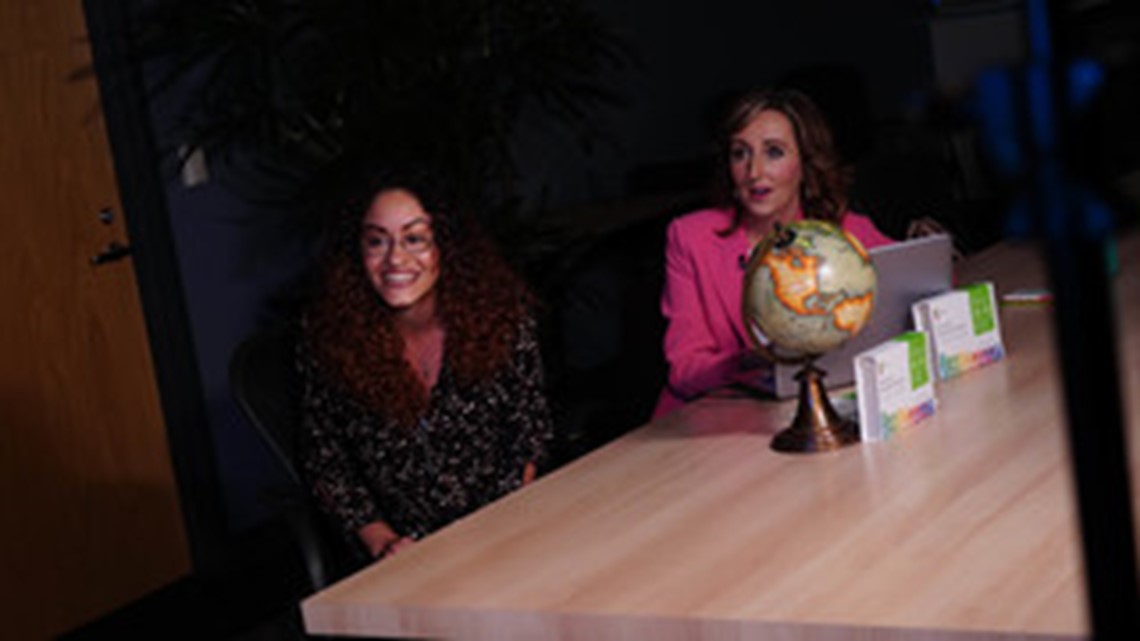
Then we looked at the health results. Wolf's test showed macular degeneration and a slightly increased risk of late onset Alzheimer's.
"I don't know if I like that term slightly increased risk,” Wolf said. “Does that mean do I worry or do I not worry?”
Ali's genetic code revealed a slightly increased risk of macular degeneration.
"Every time I get a prescription my vision gets worse so this is no surprise that is no surprise to me at all,” she said.
Herron admitted she was worried about her results because her mom has dementia. But her results showed no increased risks at all.
“Well, what am I at risk for?” she said while smiling at the screen. “There’s nothing there! Nothing on there.”
Remember the DNA kits only reveal risk based on genetics and don’t factor in environment or lifestyle.
"If you really have a family history of something that puts you at high-risk, you likely want to get a clinical test that's directed towards the condition of concern" Riconda warns.
After all the testing, our group felt the cost of the testing was worth it.

